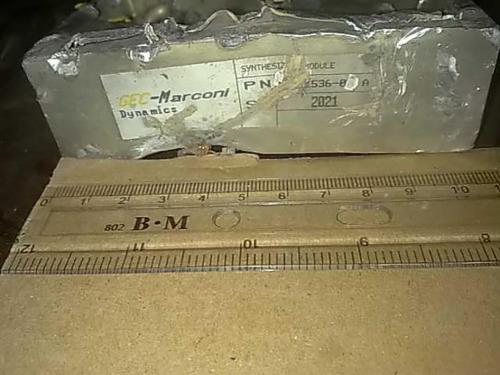UK: Court Hears Challenge to Saudi Arms Sales
Major Rights Groups Intervene to Block Weapons Linked to Abuses in Yemen
Human Rights Watch, Amnesty International, and RW UK intervened in a court case beginning on April 09, 2019 that is challenging the United Kingdom’s continued sale of arms to Saudi Arabia. The case is being heard by the Court of Appeal for three days starting on April 9, 2019.

Remnant of a UK-produced missile found at the location of an air strike at Radfan Ceramics Factory, west of Sanaa, Yemen, on September 23, 2015.
The landmark case, brought by the UK-based Campaign Against Arms Trade (CAAT), seeks to establish that the UK government is breaking its own arms export licensing criteria by continuing to sell weapons to Saudi Arabia, given the clear risk that the weapons would be used to commit serious violations of international humanitarian law in Yemen. The High Court in London dismissed the case in 2017, but the Campaign Against Arms Trade won the right to appeal, and the three groups, along with Oxfam, again received permission to intervene.
“The UK government says it has very rigorous arms controls, yet weapons continue to be sold to Saudi Arabia despite considerable evidence of Saudi-led coalition abuses in Yemen,” said Clive Baldwin, senior legal adviser at Human Rights Watch. “This case is a key opportunity to make sure that the UK rules on arms sales are being properly applied to Saudi Arabia.”
The three organizations are intervening to address the meaning of the term “clear risk” of a serious violation of international humanitarian law, which governs when arms sales should not take place. They also intend to set out the importance for the UK government and other decision-makers to take into consideration research and reports on the abuses in the war in Yemen by the United Nations and by nongovernmental groups.
Since the coalition began its aerial campaign in Yemen in March 2015, the UK has licensed at least £4.7 billion (US$6.1 billion) worth of arms sales to Saudi Arabia. Human Rights Watch researchers have regularly visited Yemen and documented the use of weapons, including weapons made in the UK, in strikes that appeared to be unlawful. The UN, Human Rights Watch, Amnesty International, and Yemeni rights groups have repeatedly documented unlawful attacks by the coalition that have hit homes, markets, schools, and hospitals, and killed and wounded many civilians.
Since 2016, Human Rights Watch has called for all countries to end arms sales to Saudi Arabia until the Saudi-led coalition ends its unlawful attacks and credibly investigates those that have already occurred. A growing number of European countries have halted sales of weapons to Saudi Arabia, including Germany, the Netherlands, and Austria.
The organizations are represented by Deighton Pierce Glynn, Jemima Stratford QC, Nikolaus Grubeck and Anthony Jones.
Source:Human Rights Watch
- 329 reads
Human Rights
Ringing FOWPAL’s Peace Bell for the World:Nobel Peace Prize Laureates’ Visions and Actions

Protecting the World’s Cultural Diversity for a Sustainable Future

The Peace Bell Resonates at the 27th Eurasian Economic Summit

Declaration of World Day of the Power of Hope Endorsed by People in 158 Nations

Puppet Show I International Friendship Day 2020

